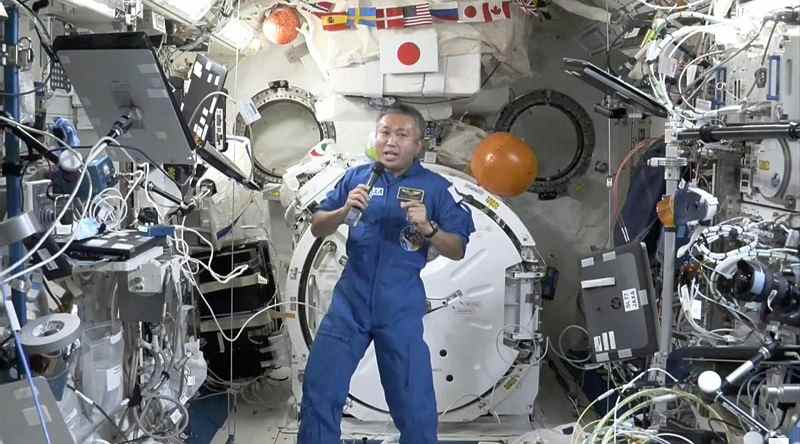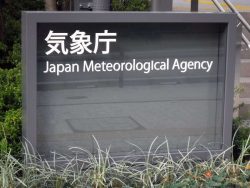
Astronaut Koichi Wakata answers questions at an online press conference from the International Space Station in October.
7:00 JST, November 14, 2022
The Japanese government intends to agree to a U.S. proposal to extend the operation of the International Space Station until 2030, thereby delaying the station’s planned retirement for six years, The Yomiuri Shimbun has learned.
The government is expected to announce the decision as early as late this week. According to sources, it intends to emphasize the importance of Japan-U.S. cooperation by being the first among the participating countries to agree to the U.S. proposal.
Japan wants to ensure its astronauts can perform their missions and acquire technology for future lunar exploration, the sources said.
Construction of the ISS, which orbits 400 kilometers above the Earth, was begun in 1998, mainly by the U.S. and Russia. The facility was completed in 2011. Japanese astronauts have frequently stayed on the ISS for long periods of time.
Japan, Canada, Russia, the United States and 11 European countries had agreed to operate the ISS until 2024. However, the U.S. National Aeronautics and Space Administration announced at the end of last year its intention to extend its operation until 2030.
Russia launched its invasion of Ukraine in February, after the Japanese government had begun discussions about the request for cooperation from the U.S. government. Japan has been carefully considering the issue, keeping a close eye on Russia’s repeated threats to withdraw from the ISS.
European countries are expected to consent to the proposal later this month, and Japan decided it would be beneficial to make a statement before they do so, the sources said.
Japan is also participating in Artemis, a U.S. space exploration program that aims to send a manned spacecraft to the moon.
The Japan Aerospace Exploration Agency is planning to conduct a technological demonstration of the HTV-X cargo spacecraft, a new type of unmanned supply spacecraft that will carry supplies to lunar orbital bases and other locations. Japan also intends to utilize the ISS as a place for astronauts to gain on-site experience, and to reflect this experience in future lunar exploration.
The government allocates tens of billions of yen annually to the ISS program. Securing a huge budget for this and lunar exploration will be a challenge in the future, observers said.
Top Articles in Science & Nature
-

Univ. in Japan, Tokyo-Based Startup to Develop Satellite for Disaster Prevention Measures, Bears
-

Japan Institute to Use Domestic Commercial Optical Lattice Clock to Set Japan Standard Time
-

Space Mission Demonstrates Importance of International Cooperation, Astronaut Kimiya Yui Says
-

Tsunami Can Travel Vast Distances Before Striking, Warn Japanese Researchers
-

Japan to Face Shortfall of 3.39 Million Workers in AI, Robotics in 2040; Clerical Workers Seen to Be in Surplus
JN ACCESS RANKING
-

Univ. in Japan, Tokyo-Based Startup to Develop Satellite for Disaster Prevention Measures, Bears
-

JAL, ANA Cancel Flights During 3-day Holiday Weekend due to Blizzard
-

China Confirmed to Be Operating Drilling Vessel Near Japan-China Median Line
-

China Eyes Rare Earth Foothold in Malaysia to Maintain Dominance, Counter Japan, U.S.
-

M6.2 Earthquake Hits Japan’s Tottori, Shimane Prefectures; No Tsunami Threat (Update 4)




















